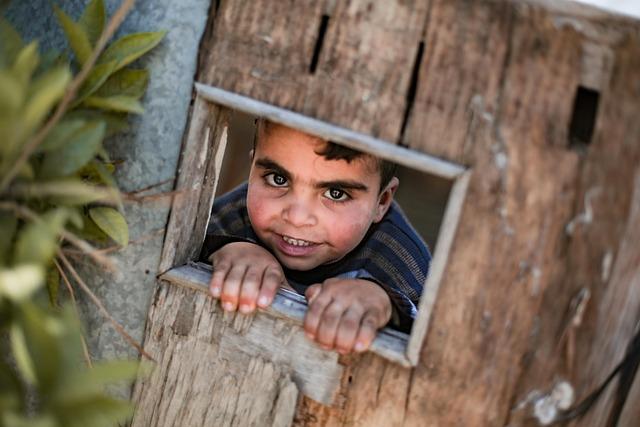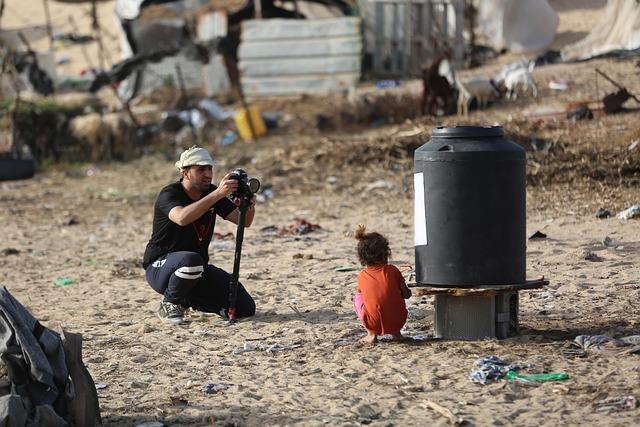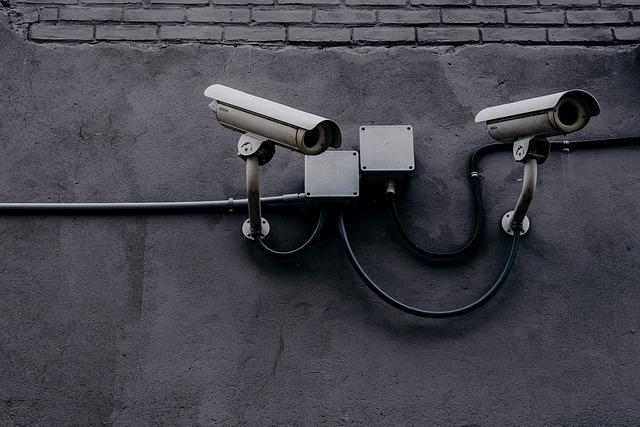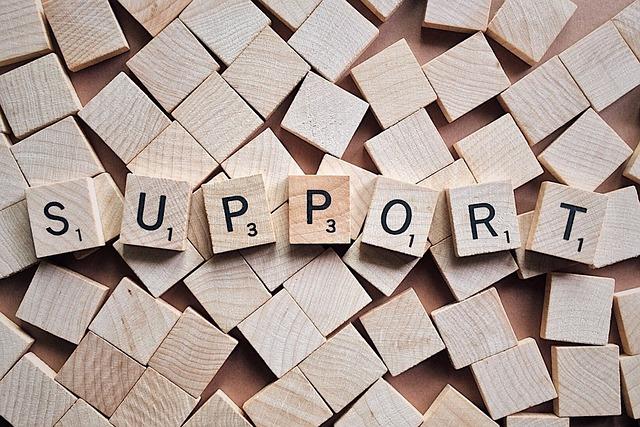Egypt’s Gaza Dilemmas: Navigating a Complex Landscape
As tensions in the Middle East stiffen and the humanitarian situation in Gaza reaches critical levels, Egypt finds itself at the epicenter of a multifaceted crisis that challenges its political, social, and economic stability. Historically a key player in the Israeli-Palestinian conflict, Egypt is now confronted with a series of dilemmas that complicate its role as a mediator and protector of its borders. With ongoing violence in gaza, a rising tide of refugees, and the potential for regional repercussions, Cairo’s response to the crisis is both urgent and pivotal.This article examines the intricate dynamics at play in Egypt’s dealings with Gaza, exploring the geopolitical pressures and domestic implications that shape its policy decisions. From balancing relations with Israel to managing its own security concerns and addressing the humanitarian needs of Palestinians, Egypt’s position is not only crucial for regional stability but also reveals broader trends in Middle Eastern geopolitics.
Exploring the Roots of Gaza’s Humanitarian Crisis
The humanitarian crisis in Gaza is deeply intertwined with a complex web of past, political, and social factors that have evolved over the decades. At its core, the plight of the Gazan population can be traced back to a series of conflicts and geopolitical decisions that have isolated the region both physically and economically. The blockade imposed by Israel, alongside restrictions from Egypt at the Rafah crossing, has severely limited the flow of goods, medical supplies, and humanitarian aid. The repeated cycles of violence amidst failed peace negotiations contribute to a worsening humanitarian situation characterized by inadequate access to clean water, healthcare, and education. As the situation persists, it raises critical questions about international duty and intervention, making it imperative for stakeholders to address the root causes rather than just the symptoms of the crisis.
Moreover, the dynamics within Gaza itself, including the political strife between Hamas and the Palestinian Authority, further complicate the humanitarian landscape. The ongoing internal conflicts impede cohesive responses to the needs of Gaza’s residents,leading to critically important governance challenges. Local organizations and international NGOs often face bureaucratic hurdles, making it tough to deliver aid effectively. Efforts to maintain basic services in areas such as health and education frequently fall short due to chronic underfunding and infrastructural damage. The situation is compounded by the global political climate, which can both inspire and hinder outside support, leaving the residents of Gaza caught in a persistent cycle of uncertainty.

Egypt’s Role as a Mediator in Regional Conflicts
In the evolving landscape of Middle Eastern politics, Egypt has long positioned itself as a critical mediator in regional conflicts, notably those involving Gaza. This role has been underscored by its unique geographic and political stature, acting as a bridge between various factions and international stakeholders. Cairo’s motivations for this engagement include:
- Historical ties: Egypt has maintained longstanding relationships with both the Palestinian Authority and Hamas, enabling it to navigate the complex web of allegiances and rivalries.
- national security: Stability in Gaza is directly linked to Egypt’s security,as conflicts often spill over,affecting border security and leading to humanitarian crises.
- Regional influence: By positioning itself as a peace broker, Egypt enhances its standing within the Arab world and among international powers, seeking to play a leading role in resolving broader Middle Eastern tensions.
Throughout numerous escalations, Egypt has facilitated ceasefires and peace negotiations, often operating behind the scenes to ensure dialog among conflicting parties. This has involved stringent diplomatic efforts, including:
- Hostage negotiations: Egypt has brokered discussions during hostage situations, striving to maintain peace while ensuring the safety of civilians.
- Humanitarian ceasefires: it has pushed for temporary truces to allow for essential aid deliveries in times of crisis.
- Bilateral talks: Engaging various factions,Egypt conducts delicate negotiations,emphasizing compromise and understanding to mitigate violence.

The Economic Impact of Gaza on Egypt’s Border Communities
The ongoing conflict and humanitarian crises in Gaza have profound economic repercussions that ripple through Egypt’s border communities. these regions, often characterized by high unemployment and limited resources, face a unique set of challenges driven by fluctuating trade dynamics and the influx of displaced individuals. Local economies, dependent on cross-border trade, struggle as geopolitical tensions hinder the flow of goods. Moreover, local businesses are caught in a double bind: while some see opportunities arising from smuggling routes, others suffer from the volatility that such operations generate.
Moreover, the strain on public services in Egypt’s border areas is significant. With a surge in the population due to migrants seeking refuge, essential services such as education and healthcare are overstretched. This has led to a cascading effect on social stability and community cohesion. Economic indicators in border regions show a stark contrast to broader national trends, where the following issues emerge:
| Indicators | Border Communities | National Average |
|---|---|---|
| Unemployment Rate | 20% | 10% |
| Inflation Rate | 14% | 7% |
| Access to Healthcare | 60% | 80% |
This stark disparity fosters frustration among residents, making them more susceptible to radicalization or shifting allegiances. As Egypt navigates these complexities, balancing national security with humanitarian responsibilities will be crucial for stabilizing these economically beleaguered communities.

Security Concerns: Balancing National Interests and Humanitarian Support
The intricate dynamics of regional security are critically intertwined with humanitarian considerations in Egypt’s ongoing dilemmas concerning Gaza. As the Egyptian government grapples with its national interests, defined largely by the need to maintain stability and security in the Sinai Peninsula, the demand for humanitarian assistance in Gaza presents a conflicting imperative. Egypt’s borders have become a buffer zone, with the influx of displaced individuals and the potential for radical elements exploiting the chaos creating palpable concern. Local officials face a challenging duality: the necessity of safeguarding Egypt’s sovereignty and the ethical obligation to provide refuge and support to those fleeing conflict.
To effectively navigate this complex landscape, the Egyptian authorities must engage in a delicate balancing act. Some of the key considerations include:
- Maintaining Security: Ensuring that assistance to Gaza does not inadvertently empower militant groups.
- Humanitarian Aid: Facilitating the delivery of essential supplies while managing border control.
- International Relations: Coordinating with global partners to secure support for both national and humanitarian objectives.
In this context, Egypt’s diplomatic efforts can be pivotal. Collaborative strategies that encompass both security measures and humanitarian outreach can help alleviate the tensions at the border while fostering a more extensive response to the crisis. By pursuing diplomacy alongside vigilant security practices, Egypt can position itself as a regional leader committed to stability and humanitarian principles.

Strategies for Sustainable Solutions in Gaza-Egypt Relations
To foster a more stable and cooperative relationship between Gaza and Egypt, several key strategies should be prioritized. enhancing Economic Cooperation is vital; this can include the establishment of cross-border trade agreements that benefit both economies. Additionally, Egypt can play a crucial role in facilitating humanitarian aid, ensuring that resources flow efficiently into Gaza while also addressing security concerns.Creating a joint task force comprising representatives from both sides can aid in conflict resolution and promote mutual understanding through regular dialogue. Furthermore, leveraging international partnerships to attract investment in infrastructure projects can serve as a common goal to unite both regions.
Another significant approach involves civil society engagement. Encouraging grassroots initiatives can help bridge the cultural and social gaps between Egyptians and Gazans. This may include educational exchanges, cultural programs, and joint community projects aimed at fostering goodwill and shared interests. Moreover, Egypt should assess its border management policies to allow more fluid movement of people and goods, which can enhance economic stability in Gaza without compromising security. Establishing transparent communication channels can also help mitigate tensions and encourage a more collaborative atmosphere, ultimately leading to sustainable solutions for both sides.

Recommendations for International support and Cooperation
The international community plays a crucial role in addressing the multifaceted challenges faced by Egypt amid the ongoing Gaza crisis. Collaborative efforts should prioritize the following key areas to foster stability and aid in humanitarian efforts:
- Increased Humanitarian Aid: Streamlined support for healthcare, food, and shelter to address urgent needs.
- Regional Diplomatic Initiatives: Establishing dialogues among neighboring countries to create a unified approach towards peace and conflict resolution.
- Economic Support Packages: Investment in the Egyptian economy to mitigate the financial strain caused by refugee influx and border tensions.
- Capacity Building: Training and resources for local authorities to improve crisis response mechanisms.
To enhance the effectiveness of international support, it is indeed vital to adopt a coordinated framework that aligns with Egypt’s priorities while addressing the humanitarian situation in Gaza. The following strategies can be beneficial:
| Strategy | Objective |
|---|---|
| multilateral Negotiations | Foster dialogue between conflicting parties for sustainable peace. |
| Monitoring and Evaluation | Establish mechanisms to assess aid effectiveness and adapt strategies as needed. |
| Promoting Civil society Involvement | Involve local organizations in humanitarian efforts to ensure community needs are met. |

The conclusion
Egypt’s role in the ongoing gaza dilemmas is a complex interplay of regional politics, humanitarian concerns, and national security interests. As the Palestinian territories grapple with a myriad of challenges, Cairo finds itself navigating a delicate balance—asserting its influence in the Arab world while managing its relationship with Israel and addressing the needs of Gazans. The intricate dynamics of border control, aid distribution, and diplomatic negotiations underscore the multifaceted nature of the Egyptian stance in this protracted crisis.
As international attention remains focused on the region, Egypt’s actions will be critical in shaping the future of Gaza and the broader Israeli-Palestinian conflict. the effectiveness of Cairo’s strategies will not only impact the lives of millions seeking stability and relief but will also resonate throughout the middle East, influencing alliances and shaping the geopolitical landscape for years to come. Understanding egypt’s dilemmas provides crucial insight into one of the moast pressing humanitarian crises of our time,highlighting the need for sustained dialogue and cooperative solutions in pursuit of lasting peace.







